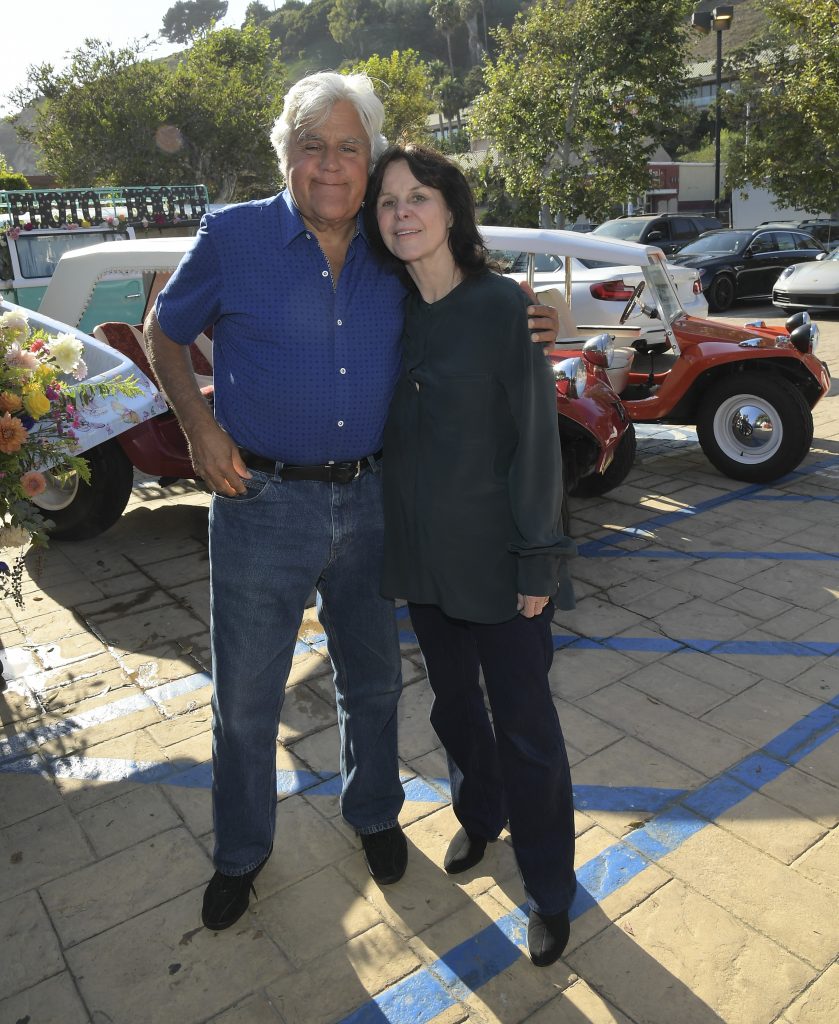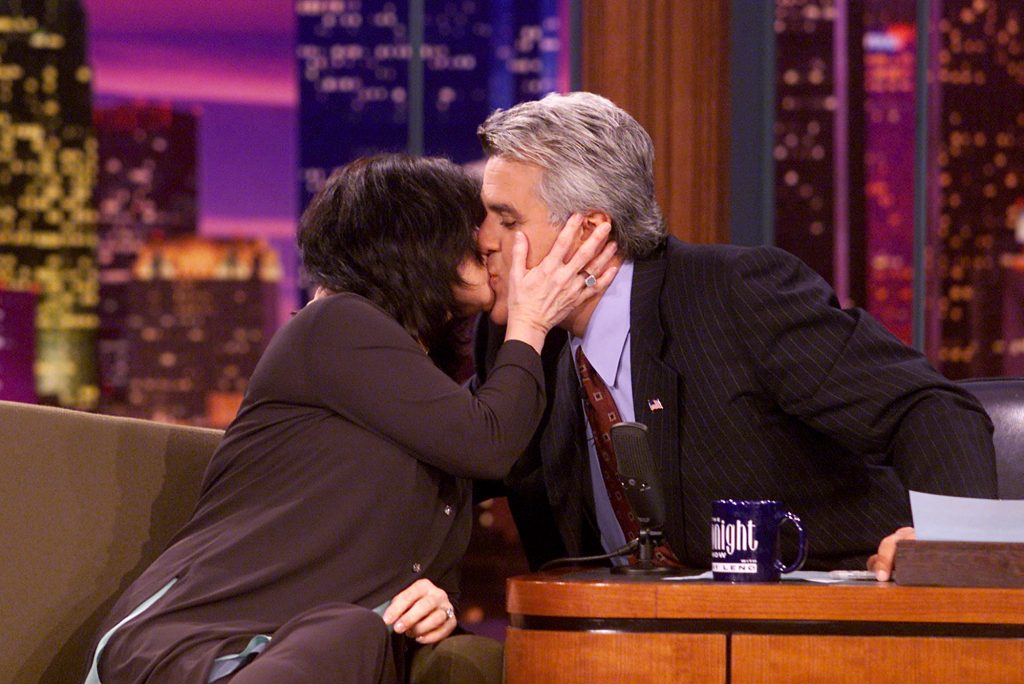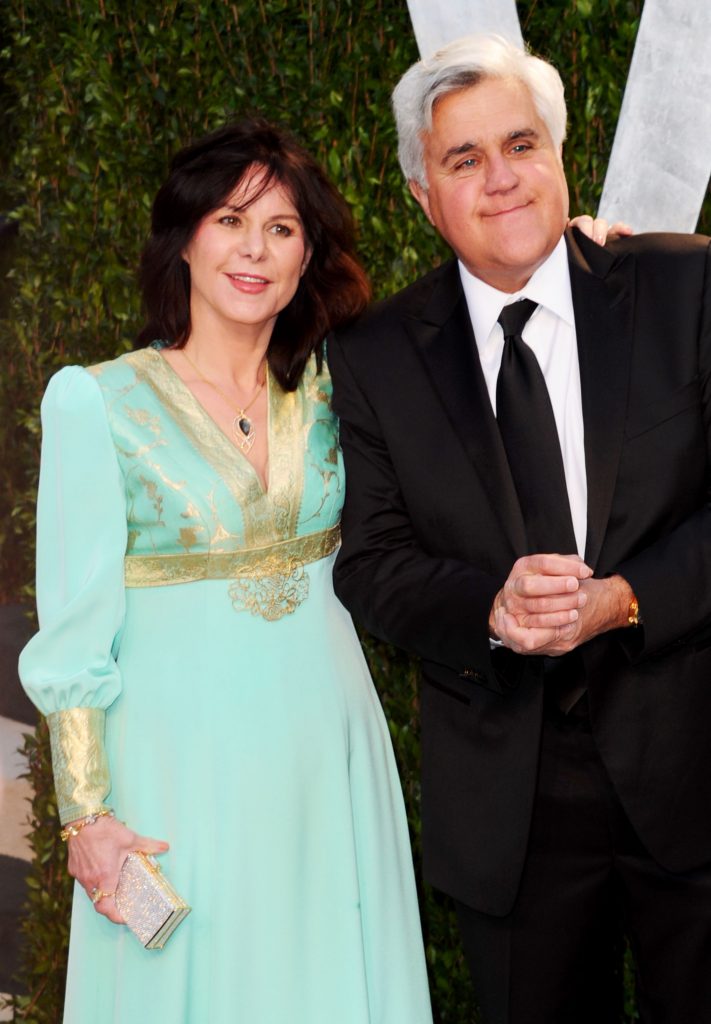Coping With the Challenges of Being a Caregiver
- Legendary comedian Jay Leno is seeking a conservatorship for his wife Mavis who is living with advanced dementia, a condition which has reportedly worsened.
- According to a new filing from last week, which was obtained by People, a court-appointed lawyer has recommended Leno’s conservatorship petition be approved due to his wife’s advanced dementia case.
- Being a caregiver is a complex and rewarding job. And taking a step back from the role from time to time might just help you give the best care possible.
- To avoid caregiver burnout — the stress, anger, fatigue and illness that can result from putting another person’s needs above your own — our experts recommend taking time for yourself. Research suggests caregivers who take good care of themselves as well can provide the best quality of care.
According to a new filing from Mavis’ court-appointed counsel, which was obtained by People, a lawyer has recommended Leno’s conservatorship petition be approved due to his wife’s advanced dementia case.
Read More
Ostrin also pointed out how Leno continues to be “loving and supportive” throughout their decades-long relationship, and Mavis sees Leno as “her protector and she trusts him.”
Mavis also “consents” to the conservatorship filing, as per Ostrin.
The documents also reportedly note how Mavis’ neurologist, Dr. Hart Cohen, has dubbed Leno as “such a nice man and treats [Mavis] like gold.”
A hearing on Leno’s conservatorship petition is set for April 9.
Expert Resources On Caregiving
- Caregivers Can’t Provide Optimal Care for Their Loved Ones with Cancer If They Don’t Care for Themselves
- Where Cancer Caregivers Can Get Help With Finances: Coping With the Bills
- The First Steps to Take as a Caregiver When a Loved One is Diagnosed With Cancer
- Here Are Top Tips For Cancer Caregivers To Help Them Through The Process
- Amid Rare Dementia Diagnosis, Wendy Williams, 59, Is Still ‘Able To Do Many Things For Herself’
The upcoming hearing comes just three months after Leno filed for conservatorship as his wife is suffering “major neurocognitive disorders” following a dementia diagnosis, multiple outlets cited.
A conservatorship is requested when a person is not able to handle their own personal and financial affairs, whether it’s a minor or someone who is “gravely disabled” due to a mental disorder, per Los Angeles County Department of Mental Health.
It hasn’t been publicized when Mavis first received her dementia diagnosis — but it’s clear that her husband has adopted the role of caregiver.
David DuFault, a principal attorney at Sodoma Law, told People in an earlier interview, if Leno’s petition succeeds, he’ll be “responsible for making all decisions based on the scope that the court gives him.”
Decades of Love — Jay and Mavis Leno
Jay and Mavis Leno first met in the 1970s after one of his performances at The Comedy Store, which is a world famous comedy club located on the Sunset Strip in West Hollywood. Still featuring top talent today, the venue has welcomed Dave Chappelle, Chelsea Handler, Bill Burr, Theo Von and Chris Rock, along with late legends like Robin Williams and Bob Saget.
Leno and many of his colleagues wound up boycotting the club in 1979, going on strike to demand wages for comics. The following year, he and Mavis married. The couple never had children.

“I always had this idea that I would never get married,” Mavis told PEOPLE back in 1987. “But with Jay, I began to realize that this was the first time I was ever with someone where I had a perfect, calm sense of having arrived at my destination.”
And Leno has a proven longevity both in his marriage and career.
Perhaps most know as the long-running host of the “The Tonight Show” on NBC, Leno’s first episode aired on May 25, 1992 and his last, 22 years later on Feb. 6, 2014.
Leno has always been a protector, sharing with the L.A. Times in 2014 that marrying Mavis was important to him because he wanted the San Francisco-born philanthropist to be covered by his insurance in the case of emergency.

“I had this insurance policy, and I thought if something happened to me, my girlfriend wouldn’t be covered, but if we’re married, we’re covered, so … we might as well get married.”
“Not the most romantic,” the star, who continues to put his wife’s needs first, joked.
Understanding Dementia
According to the National Institute on Aging, “Dementia is the loss of cognitive functioning — thinking, remembering, and reasoning — to such an extent that it interferes with a person’s daily life and activities.
“Some people with dementia cannot control their emotions, and their personalities may change. Dementia ranges in severity from the mildest stage, when it is just beginning to affect a person’s functioning, to the most severe stage, when the person must depend completely on others for basic activities of daily living, such as feeding oneself.”
It’s unknown what type of dementia Leno’s wife is living with, however, Alzheimer’s is the most common one.
“Various neurodegenerative disorders and factors contribute to the development of dementia through a progressive and irreversible loss of neurons and brain functioning. Currently, there is no cure for any type of dementia,” the institute explains.
The different types of dementia include:
- Alzheimer’s disease
- Frontotemporal dementia
- Lewy body dementia
- Vascular dementia
- Mixed dementia (a combination of two or more types of dementia)
The Complex Art of Caregiving
Jay Leno can surely confirm caregiving is a complex and rewarding job. Some days may be more difficult than others, but it’s important to understand just how crucial the role really is.
“Caregiving is the most important job in the universe, because you are there through the highs and lows,” Julie Bulger, manager of patient and family-centered care at Vanderbilt-Ingram Cancer Center in Nashville, Tennessee, told SurvivorNet in an earlier interview.
“You are there to support your loved one, to manage all of the daily tasks as everything is changing in your life. There’s so much evidence that outcomes are better when somebody has an incredible caregiver by their side.”
‘A Sacred And Blessed Calling’: Managing Life As a Caregiver
But carrying the weight of such an important role can take a toll. That’s why Tom Evans, a pastor of the Brick Presbyterian Church in New York City, wants caregivers to share the emotions they’re feeling with others.
“In those frustrations and that anger, take time to find someone to express that to,” he told SurvivorNet. “Whether it’s a friend, whether it’s a pastor, whether it’s a neighbor, because as you work that out of your system, you’ll be better able to be there for them.”
RELATED: How to Be a Better Caregiver for Your Loved One
Evans says no one can be a caregiver 24/7 — and research suggests caregivers who take good care of themselves provide the best quality of care.
“It’ll break anybody,” Evans said of caregiving. “Just remember that you can’t care for someone else properly unless you’re strong. So, don’t hesitate to find those times.”
Patrick Dempsey’s Advice to Cancer Caregivers: Take Care of Yourself, Too
To avoid caregiver burnout — the stress, anger, fatigue and illness that can result from putting another person’s needs above your own — professionals suggest finding a relaxing activity that can act as an outline. This could mean getting a massage, joining a support group, seeing a therapist, or a wide array of other activities. There are no right or wrong answers, but just make sure you’re doing something for you.
“It is important to have some things that you can do outside of the focus of caring for somebody that you love with cancer,” Bulger said.
Stand-Up Comedian & Cancer Caregiver Jesus Trejo Reminds Us That ‘Laughter is a Game-Changer’
Seek Professional Help If You Need It
When a stressful life event occurs, like a loved one being diagnosed with cancer or dementia, people respond in a variety of ways.
“The way people respond is very variable,” Psychiatrist Dr. Lori Plutchik told SurvivorNet. “Very much consistent with how they respond to stresses and challenges in their life in general.”
When struggling with a new stressor, there are many different, and healthy, ways to cope. Some people may seek out traditional therapy, and there should be no shame in that.
Psychiatrist Dr. Lori Plutchik Discusses Responding to Stressors
If you are struggling mentally due to the stress of caring for a loved one, there are many options that may be able to help you cope. These include:
- Seeking professional help from a psychiatrist or therapist
- Learning healthy coping skills
- Medication such as antidepressants
- Adding more physical activity to your routine
- Adjusting your sleep schedule
- Connecting with others via support groups
- Mindfulness and meditation
Social workers or patient advocates can be a huge help for caregivers during the journey. As a caregiver, you may want to enlist the help of one of these employees. They often work for cancer centers and can provide guidance on treatment options, financial assistance, information on where to seek mental health resources, and so much more.
“Patient navigators can function differently at different hospitals,” Dr. Kathie-Ann Joseph, a surgical oncologist at NYU Langone Health’s Perlmutter Cancer Center, told SurvivorNet. ”
We have a really wonderful program at [NYU] where we used lay navigators — meaning they’re not nurses, although you can use nurses or social workers — that pretty much help newly diagnosed cancer patients through the continuum of care.”
Dr. Kathie-Ann Joseph explains how patient navigators can help throughout the treatment process.
These navigators can meet with patients from their first doctor appointments and can also:
- Attend appointments
- Provide an assessment for next steps of care
- Assist with housing, transportation or immigration issues
- Help with financial issues
- Provide direction on legal issues
Contributing: SurvivorNet Staff
Learn more about SurvivorNet's rigorous medical review process.

